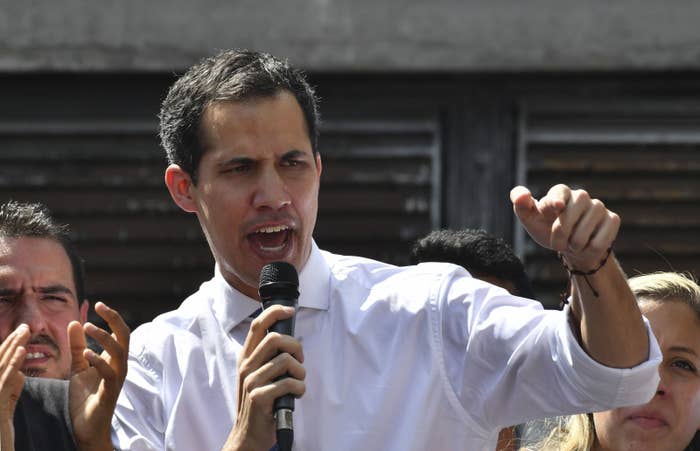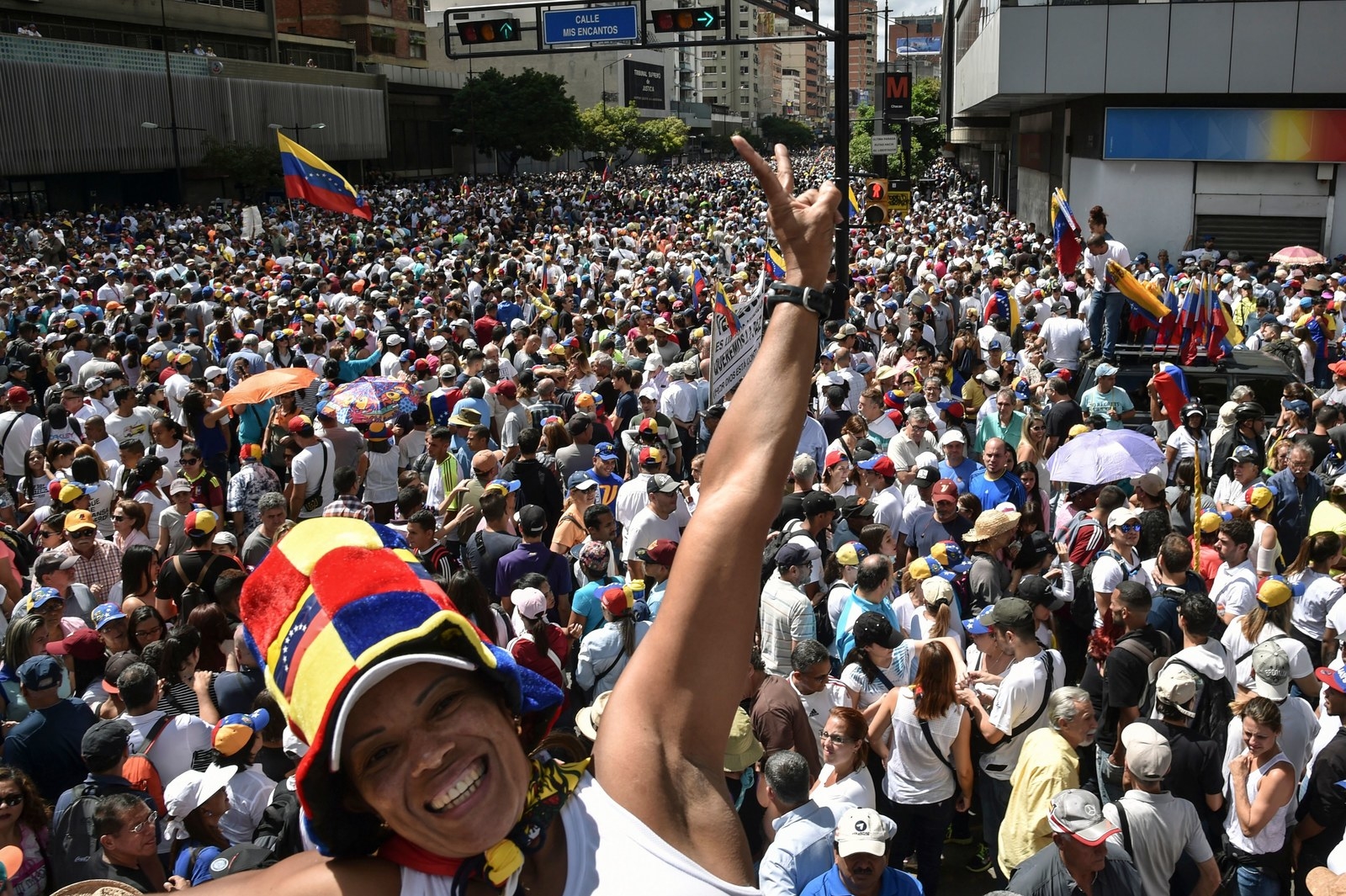
The president of Venezuela's National Assembly told a cheering crowd on Wednesday that he would serve as acting president, placing him in direct conflict with President Nicolás Maduro's regime.
Juan Guaidó, the 35-year-old head of Venezuela's legislative branch, has only been in his role for less than a month. In that time, though, he's sparked new life into the Latin American country's opposition, which has been stifled for years under Maduro.
Venezuela has spent most of the last decade in the midst of an economic crisis unlike anything seen in the region before. Basic staples are missing from store shelves with no money for most people to buy what still remains as inflation has continued to swell. In 2018, it was projected to top 1,000,000%. More than 3 million people have fled Venezuela for neighboring countries and the country's maternal and infant mortality rates have been steadily rising. Maduro has kept a firm grip on power throughout these crises, imprisoning political opponents and silencing dissent.
The Trump administration quickly put out a statement recognizing Guaidó as the head of Venezuela and encouraged other countries to do the same. "The people of Venezuela have courageously spoken out against Maduro and his regime and demanded freedom and the rule of law," President Donald Trump said in the statement.
The citizens of Venezuela have suffered for too long at the hands of the illegitimate Maduro regime. Today, I have officially recognized the President of the Venezuelan National Assembly, Juan Guaido, as the Interim President of Venezuela. https://t.co/WItWPiG9jK
In response, Maduro announced that he was cutting diplomatic ties with the US and gave US diplomats 72 hours to leave the country. The two have not exchanged ambassadors in years — both country's embassies have been led by charge d'affairs since 2010. Guaidó, however, immediately sent a letter to embassies in Caracas, the capital, declaring that relations weren't actually being broken with any states.
#Comunicado para todas las Embajadas presentes en Venezuela. Responsablemente les digo que somos una nación soberana y seguiremos manteniendo las relaciones diplomáticas con todos los países del mundo. Seguimos firmes en retomar el Orden Constitucional.
The US's announcement of support for Guaidó was quickly followed by a similar declaration from Canada, Colombia, Brazil, and Peru. But Mexico, headed by left-wing president Andres Manuel Lopez Obrador, said that it did not see a change in its Venezuela policy "for the time being" and that it still recognizes Maduro as the leader of Venezuela.
#Mexico does not foresee a change in its policy on #Venezuela "for the time being"- Foreign ministry spokesman says after Venezuelan opposition leader declares himself president
In 2015, control of the Venezuelan legislature was handed over to the opposition party after decades of control by former president Hugo Chávez and Maduro, his successor. In response, Maduro announced the creation of a new body that would rewrite the country's constitution, superseding the National Assembly.
Maduro himself stood for reelection last year to widespread condemnation from the international community. Ahead of his inauguration ceremony, the Organization of American States' members agreed not to recognize Maduro as the legitimate head of Venezuela, setting the stage for Wednesday's dramatic turn of events.
CARACAS, Venezuela (AP) — Venezuela opposition leader Juan Guaido declares himself interim president before thousands cheering in support.
Under Article 233 of Venezuela's current constitution, the National Assembly does have the power to declare a vacancy in the presidency, which it did on Jan. 15. According to the law, the head of the legislative body acts as interim president until elections can be held. It's under that provision that Guaidó, head of the Popular Will Party, made his announcement, which would have been unthinkable in years past.
But Maduro is struggling with weakened support among some of the segments of society that have kept his regime propped up. Several National Guard soldiers in Caracas declared their support for the opposition leader on Monday, prompting a crackdown. Guaidó and his wife, Fabiana Rosales, both posted videos online this week, addressing the military through the camera, urging low- and mid-ranking soldiers to turn away from Maduro.
"We are not asking you that you rebel, brother, let alone a call to rebellion," Guaidó said, leaning on the constitutionality of the National Assembly's actions.
The country's supreme court, loaded with Maduro supporters, ruled on Wednesday that the legislature had illegally usurped the executive's powers, setting the scene for Maduro's government to arrest Guaidó.
The game is on. @jguaido just said the words: he took an oath to take charge of the interim Presidency of Venezuela. Different sources say that it is possible that Trump will recognize him as President. The Chief Prosecutor has his marching orders from the chavista Supreme Court.
The protests on Wednesday, which took place across the country, were some of the largest Venezuela has seen in years. It's estimated tens of thousands of people have taken to the streets to support the opposition's plans.
The last major protests in the country in 2017 ended with a violent crackdown that left more than 100 people dead.

Meanwhile, the US has spent the last few weeks throwing its support behind Venezuela's opposition, drawing harsh rebukes from Maduro's administration. Ahead of the protests, Vice President Mike Pence posted a video supporting the marches, prompting Maduro to order a total revision of US–Venezuela diplomatic relations.
And Florida Sen. Marco Rubio, who has long pressed for a more confrontational policy towards Maduro, met with Trump at the White House on Tuesday. He told reporters afterward that he and his fellow Florida politicians had "encouraged the president today to follow through with what he’s already declared, which is that Maduro is illegitimate. The next logical step is to recognize the president of the national assembly as the rightful president."
